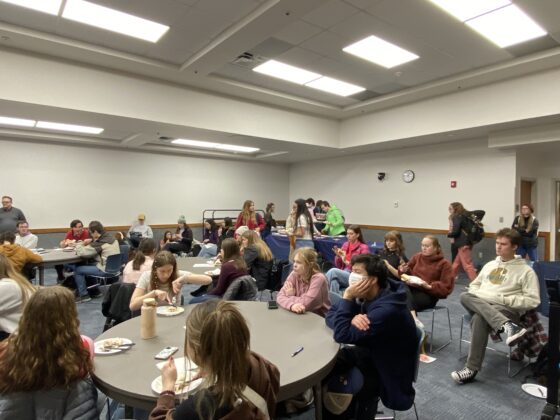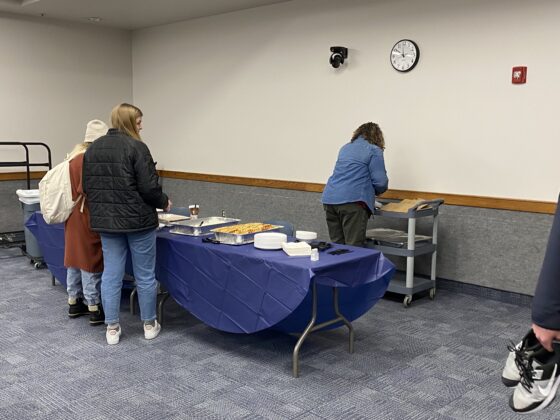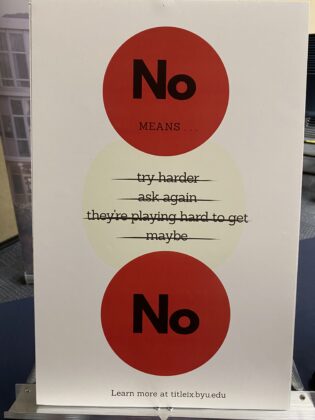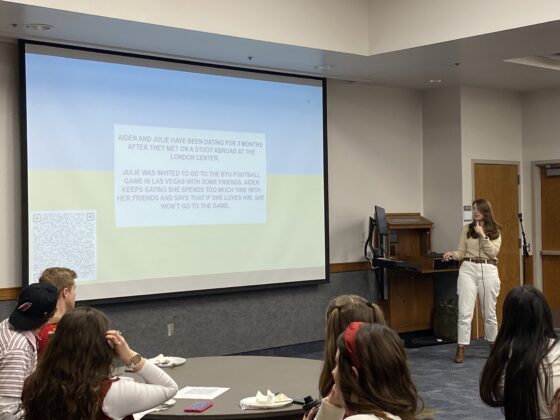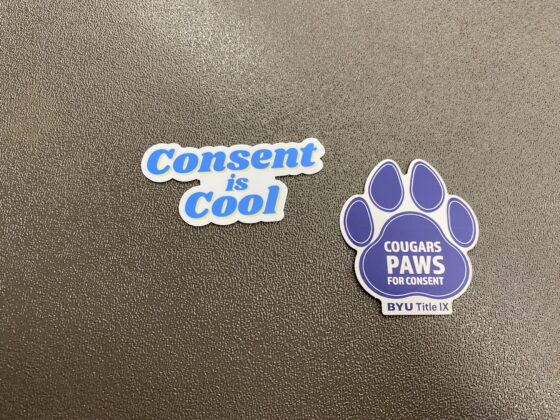The Title IX Department on campus hosted a ‘Red Flags, Green Flags’ workshop teaching students how to recognize potential warning signs, as well as positive things to look for, in dating and romantic relationships.
“This is focused on the prevention of things we see come into the (Title IX) office,” Abigail Morrison, the deputy Title IX coordinator, said.
The event was hosted by the Title IX Department, whose goal is to prevent and respond to sex discrimination, according to Morrison.
“I think it is really cool to have these kinds of meetings where we can come together and talk about these kinds of things with an open dialogue,” BYU senior Jessica Byers said.
Throughout the event, students were asked their opinions about consent as well as scanned QR codes to ask questions anonymously.
“In my mind, consent starts with a conversation with yourself,” Morrison explained to students. She taught that students should consider to themselves what they are comfortable with first, then communicate it to a partner.
Morrison said consent is active, engaged, enthusiastic, ongoing, voluntary, verbal and can be withdrawn at any time. She also explained what aspects of healthy relationships look like.
“I really liked the idea of not asking for consent once and assuming you have it … I think it is always a good idea to check in,” BYU sophomore Josh Chapman said.
One of the submitted questions was, “Will submitting problems to the Title IX Office affect my ecclesiastical endorsement?”
Morrison explained that the Title IX Office does not report to the Honor Code Office. She said conversations had within the office are private, and the important thing for students is to feel safe reporting what has happened to them and reaching out for help.
Some of the “green flags,” or signs of a healthy relationship, include honesty, respect, kindness, equality and fun. She emphasized feeling comfortable both with the pace and communication.
“Red flags” include behaviors such as deflecting responsibility, possessiveness, manipulation and guilting. Morrison also explained that although these behaviors are considered generally to be warning signs of unhealthy relationships, the intensity of these behaviors and the openness of partners to communicate about these issues is important as well.
“None of us are wholly good people or wholly bad people,” Morrison said. “There is a spectrum of severity.”
During the presentation, Morrison brought up case studies that she discussed with those present. These examples included both healthy and unhealthy relationships, as well as cases where communication and conflict resolution would be important.
“We all think about relationship stuff a lot but walking through it with a big group of people is helpful,” Chapman said. “It was good to just go over what is good and what is not good, what is expected.”


